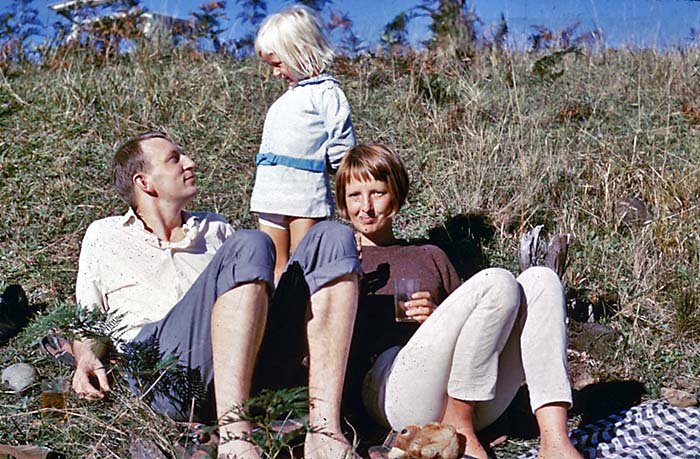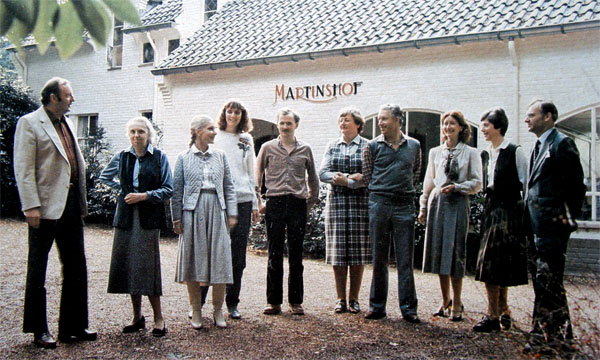Modern day Relevance of Ancient Chinese Philosophies
More on Happiness
Confucius' mat
Give someone a Fluffy today
Jazclass
Alerted by a recent article in The Australian Newspaper I
immediately purchased an iBook copy of
"The Path : A New Way to Think about
Everything", by Prof. Michael Puett and Christine Gross-Low.
Published only recently (May 2016) it is also available as a normal
Penguin book.
It presents the (often mis-interpreted) ideas of Confucius,
his student Mencius and other ancient Chinese philosophers in
their correct meaning and in the context and perspective of our
present way of life.
 It is obvious that our present attitude to life is much
deplorable : selfish, greedy, with monetary gain (the "bottom
line") usually our main objective in life, and with little
consideration of others.
It is obvious that our present attitude to life is much
deplorable : selfish, greedy, with monetary gain (the "bottom
line") usually our main objective in life, and with little
consideration of others.
The media, TV, most Newspapers,
movies,
books are aimed at the lowest common denominator of humanity
dealing with mindless fun, sex and violence.
There is much to be learned from these ancient philosophers,
living 2,500 years ago.
Unlike most philosophers (who focus on overarching ethical
aspects of life and society), Confucius starts from the
opposite end, at the ordinary basic interactions between human
beings
in their normal day to day encounters.
By tiny incremental steps
forward in our attitude and actions we can (he claims) over time
improve the happiness and meaning of others, as well as of our own
life.

I will focus here on three fundament aspects of this ancient
approach to life. They are :
- Bring out positive emotions in others.
Behave as if you were the
other person.
- Unlock your potential for personal
growth by not considering yourself as a finite
personality.
("This is typical
of me." "I can't help it, this is who I am !")
- Make decisions from a combined Heart&Mind
approach.
Not
based on your mind or your emotion alone.
As soon as I started reading this book, I
immediately felt a great affinity to those ancient philosophic
ideas. For I instantly realised that throughout my life I have (at
least at times) instinctively acted according to their teachings.
I include a few of these personal examples in the following
text, to illustrate typical Confucius' ideas in our
contemporary day to day life.
1. Emotions
We all posses a vast array of different emotions : happy, sad,
fearful, confidant, angry, understanding, etc.
However all these feelings are locked inside us and it needs
something or someone from the outside to bring them out into
the open.
- I wake up in the morning and the sun is shining outside.
Immediately it puts me in an agreeable and happy disposition.
- I walk in the street and a stranger smiles at me.
Immediately I smile back and as a result both of us have received a
small impulse towards a happy disposition for the immediate future
of that day. Our positive demeanor may well infect others around us
in a snowball type effect.
If on the other hand I would have
ignored his smile or even have sneered back at him, both of our
feelings would have dropped into the negative for some time
thereafter, with possible flow-on effect to others as well.
This is what Confucius' teaching is all about.
Goodness
from his philosophy's perspective is the act of bringing out a
positive emotion in someone else.
To be able to do this
consistently we need to think and feel as if we are the other
person. This has three positive effects :
- When successful we draw out a positive emotion from the other
person, with possible snowball effects to others.
- It makes us happy or satisfied our self (with possible snowball
effects to other).
- By just for a moment mentally placing our self in the others
person's position, we expand and grow (by a tiny amount) our own
personality.
Here is a typical example from my own
experience.
I am in Europe on a short flight from Frankfurt to
Basel. While we are taxying to the runway the stewardesses go
through the usual safety instructions : opening and closing
seat belt buckles, putting on the oxygen masks, etc.
 While the stewardess in front of me is doing all this I keep
observing her, while listening to the taped instructions in German
and French.
While the stewardess in front of me is doing all this I keep
observing her, while listening to the taped instructions in German
and French.
After the instruction is over, the stewardess stores away the items
used, then walks straight up to my seat and says : "Thank you very much for paying attention and
watching me. You know, it can be so embarrassing for us to go
through this simple routine while nobody is taking any notice at
all."
All of us fly regularly and are thoroughly familiar with the safety
instructions on board. So most travelers don't watch and listen, but
keep reading their book or magazine, look out of the window, or
simply close their eyes. So next time you are on a plane look at
the stewardess. They won't feel so utterly and depressingly
ignored, and Confucius will smile on you !!
Bringing out positive emotions in others at the Bridge Table
2. Grow as a person
According to Confucius the world is not ordered, but chaotic
in nature and anything can happen at any time.
People too are
predominantly chaotic entities who can grow into a variety of
directions over time, provided they allow themselves to do so.
It therefore makes no sense at all to have a fixed plan for
the course and ambitions of your life.
It is also very
restrictive to stereotype yourself as having a
certain defined personality, or live a fixed, well defined, settled life which
can no longer be altered.
You simply lock yourself within a box,
from which you can not escape to grow further. You exist, but without growth you no longer truly live !
The Russian composer Igor Stravinsky expresses it seductively simple :
"To conitnue in one direction is to go backwards!"
So what should you do to overcome this ?
Make broad plans
and decisions which provide opportunities to grow, but that won't pin you down
into a static existence.
 This resonates very strongly with me, for it is something that I
have done for virtually my entire life !
This resonates very strongly with me, for it is something that I
have done for virtually my entire life !
I had never met an Australian before in my life, but reading the
books by novelist Nevil Shute (In the Wet, A Town Like
Alice, On the Beach) I felt strongly attracted to that far away
continent.
Despite having been offered a great job while maintaining
my base in Holland, and re-enforced by a like-minded wife
(Antien), we emigrated to Australia in 1965 and have
never regretted it.
Returning to Holland in 1970 for a brief
holiday, I found my friends not at all interested in my experiences.
They always kept well away from the subject and in some cases only
wanted to know how much money I was making. When they found out they
were doing the same as or better than me financially it confirmed their
"decision" (they of course never seriously made anyway) to stay in
Holland.
Of course they entirely missed the point : we went to
Australia not for the money, but instead for the experience
and great opportunity for personal growth in this new and wonderful
environment.
Another major decision I made in my life occurred during my "mid life
crisis" after having split up with my family.
I decided I might
as well go all the way and quit my job as well (in 1981 as a Consultant with
the mining company WMC). During a 14 year long search I had not found
a job within my area of expertise that gave me any real
satisfaction. Instead I had a wonderful experience in playing
some Trad
Jazz on Bougainville Island, so I started to study
saxophone and piano.
 I received many comments like :
I received many comments like :
"You are
crazy to quit your job, throw away your carreer!" or
"What the hell are you going to
achieve by doing this ??
Frankly I did not have a clue either.
I just knew I wanted
to do this, no I had to do this. In time a solution would
present itself !
I had enough money in the bank for about 6
months, after that something had to happen. And of course did
happen : my father suddenly died of a stroke and I had to rush back
to Holland to run our family business Martinshof.
It was
recession time in Europe and our company was rapidly heading for
bankruptcy. However we managed to survive, sell the company, and late
1983 I found myself back in Adelaide pursuing my dream, studying
music.
In due course I realised I did not want to waste my
time teaching dud students at the Conservatory. So I left
Adelaide, settled at the Sunshine Coast and started teaching music
privately and playing occasional Jazz gigs.
In 1996 I started my
music education web site Jazclass which
routinely attracts over 1 million students every year, many of whom
consider my music education the very best available in the world to
day. My lessons are also translated into various other languages.
It all gives me enormous satisfaction. But above all, it
is a great example of where a broadly based Confucius like decision
can lead to in terms of personal development and growth.
3. Making Heart&Mind
decisions
Confucius teaches to make decisions based on a combined Heart&Mind approach. Decisions based on considerations by
the mind alone or on emotions alone, can lead to poor if not
incorrect outcomes.
If I understand his philosophy correctly Confucius advises
us to modify our emotions from a sometimes volatile nature to
a more subdued level.
In such condition we are able to
use our emotions as a positive, constructive contribution and combine them with the
considerations of the mind.
This is a important
difference compared to the thinking of more recent Western
philosophers like Emmanuel Kant, who deliberately left
emotional considerations out of their deliberations.
I remember an interesting example from 1981 when I (for a short
period) was running our family business Martinshof.
Immediately
after my arrival in Holland our company's Bank Manager urged me to
carry out a costing exercise for our expected expenses and income
for the following year.
After completing this as he suggested, it
became obvious that considerable cost cutting would be required in
order to stay viable an avoid bankruptcy.
Our 10 employees had
always been like family to my parents, and most of them had been
with our company for 10 or more years. Nevertheless it was clear
that I had no other option than to dismiss at least 2 of them.
As with all my decisions during that time I discussed this issue
with my reliable confidant, the Senior Book keeper of our company,
Mrs. de Jonge. She did have a complete grasp of all aspects of our
company and also was thoroughly familiar with all employment related
regulations current at the time.
 After having explained the situation to her, she too could see no
way out.
After having explained the situation to her, she too could see no
way out.
But the following day she came to me again first
thing in the morning.
"Mr. Furstner" she began, "I could not sleep a wink last night. The though of
having to sack two of our people kept me thinking all night."
"But" she continued "there might be a
less painful option."
Naturally I was most interested to hear more. She suggested that
rather than dismissing two of our employees, we put
four of our employees working for half days instead.
Our company would
pay them half their salary, and if we could convince the Dutch
Government, the four might receive dole money for the other half day out
of work.
This way the four employees on half time would receive 90%
of their full salary, which under the circumstances would be a very
good deal.
I thought this was a splendid idea and we
immediately proceded with contacting the Government office dealing with
unemployment and preparing a brief for them.
A few days later Mrs. de Jonge and I met the Government official
dealing with our case. To this day I still clearly remember his
face and the dark blue, white dotted bow tie he was wearing.
We discussed the matter in a most pleasant manner and were told the
Government would accept our scheme, provided a convincing financial
case could be presented by our Accounting firm.
The accountants obliged and our scheme went ahead as planned.
Besides keeping our employees happy under the circumstances the
scheme had the great advantage that we could hold on to the four
staff and re-employ them on a full time basis as soon as this would
be viable. This happened in due course with several of them staying
with our company for the following 30+ years.
It was a very
successful Mind&Heart decision the two of us arrived at,
which gave much satisfaction to both of us and to all others
involved.
© 2016 Michael
Furstner
|
 It is obvious that our present attitude to life is much
deplorable : selfish, greedy, with monetary gain (the "bottom
line") usually our main objective in life, and with little
consideration of others.
It is obvious that our present attitude to life is much
deplorable : selfish, greedy, with monetary gain (the "bottom
line") usually our main objective in life, and with little
consideration of others. 
 While the stewardess in front of me is doing all this I keep
observing her, while listening to the taped instructions in German
and French.
While the stewardess in front of me is doing all this I keep
observing her, while listening to the taped instructions in German
and French.

